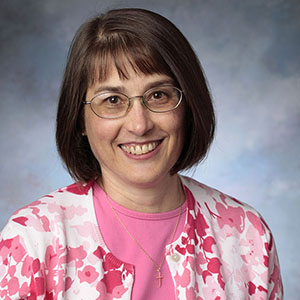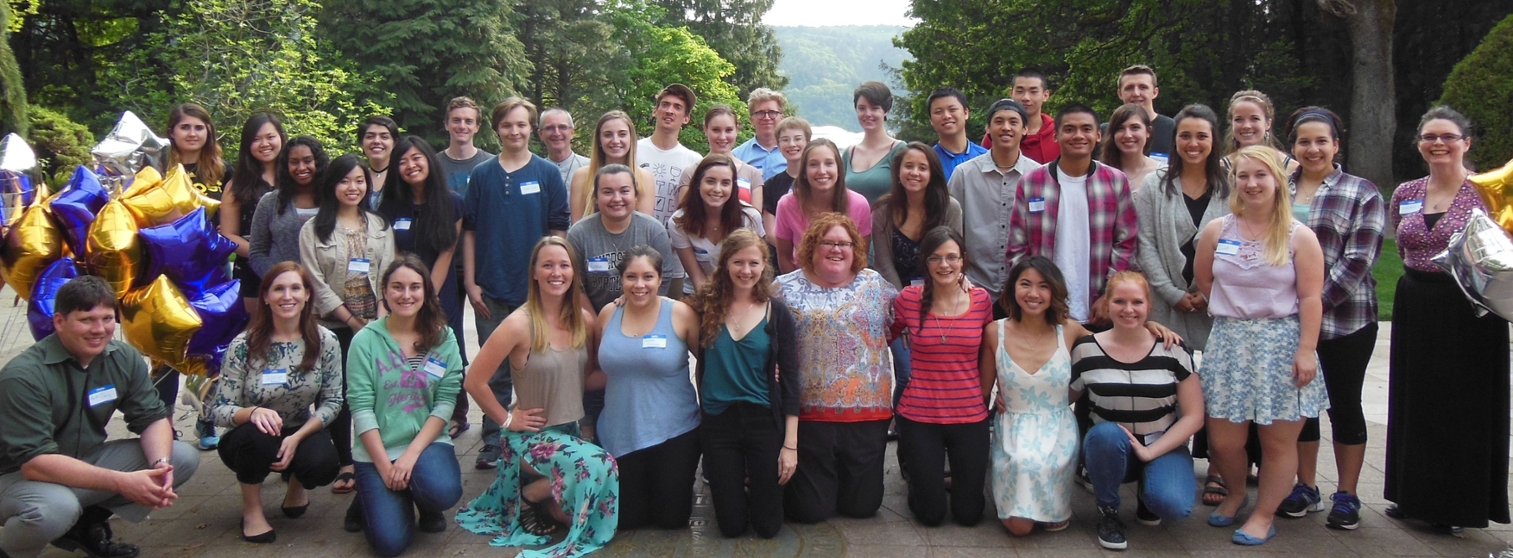Paula Tower
 Current Position: Biology Lecturer
Current Position: Biology Lecturer
Alma Mater: University of California at Davis
Major/Undergraduate field of study: Bachelor of Arts in Bacteriology
What was it like being among the first in your family to go to college?
I think it helped that my sister had gone to college before me so I knew about the SAT test, FAFSA, some scholarships, and had heard about picking classes for registration. (I certainly didn't get much help from my high school other than dates of the SAT test.) I also got to spend a weekend with my sister in the dorms and became familiar with college life: eating in the dining commons and living in a small space. When I first went to college, I was pretty confident, but then I got my first midterm back in Calculus. A 65! I immediately jumped to the conclusion that I didn't belong in college and was ready right then to drop out. I didn't get anything wrong on the questions that I completed, but I just could not finish in the allotted time. I realized that it was more a question of quickly recognizing how to approach a problem and that was just a matter of practice. So I did *every* problem in the book, not just the ones assigned. If you are not doing well, DO SOMETHING DIFFERENTLY! And that means investing more time than you think, more than just what is assigned. Be active in how you learn. It is not just more time, but more *effective* studying. After that wake up call, I scored in the mid- to high- 90s. I think I ended up succeeding for a number of reasons. One-I had excellent preparation in high school. Two-I am a hard worker and a very independent learner. I had been working every summer since fourth grade so I knew what "work" really meant and was not used to having free time. Three-I completely fell in love with bacteriology and biochemistry. It wasn't a chore to go to class or to study. It was fascinating! Finding what you are passionate about makes the work and the journey worth it. Four-I pretty much paid for my own education so I was invested in finishing in four years. Since I went to a big state university, it was easy to just disappear into a big class. I liked that. I wanted to just learn for myself and I didn't have to worry about being called on. I sat up near the front and could just focus on the lecture. But my biochemistry professor made an effort to know who was struggling and he made you come get your exam in person. My exam was also not in the usual stack to pick up. When I approached Dr. Benson, he said he wanted to know who had done so well. Even with a class of 250, he knew who I was and would even yell hello across the quad when he saw me. When it was time to apply to graduate school, he was the only professor I thought would remember me and be able to write a recommendation. His reply was that he couldn't think of anyone better suited for graduate school and his belief in me was beyond encouraging! Get to know your professors. They can open up new worlds for you. They can hold up a more accurate mirror to you than the one you look in each day (the one where you feel you don't belong). They may tell you hard truths, but that is so you make the changes necessary to succeed. And they can be enormously supportive. I was too embarrassed to admit I didn't even know what graduate school was or what the GRE was. So I want students to feel like they can ask me anything-from an ordinary word on an exam that they don't know to what a credit is to how to change majors to admitting to their parents that they are failing a class. I want to help you "up."
Are there any unique challenges you faced as a First Generation student?
Probably my biggest challenge (not that it was unique) was that I did not come from as wealthy a background as did most of my peers. They had been exposed to a much wider world than I and had vastly different experiences. They were used to new and different experiences whereas I was more fearful of anything new. I have learned to listen--to just about anyone--as I never know when I will learn something that will help me down the road.
Do you have any advice for FGEN students at UP that are facing challenges?
If you are struggling in any aspect of life at UP, seek help from someone, someone you trust. Just asking that first question may help you discover resources you didn't know about or help you find your own personal cheerleader. Even if that question is "I don't know where to start." UP has a wealth of resources and lots of people who WANT. TO. HELP! You are not alone: LOTS of students struggle. Just because others seem to have it all together, doesn't mean they do. Some of those who appear most confident are the ones who need help the most. You are paying for all these resources so USE them! You don't have to even be struggling or in fear of failing to use them. Lots of us know what you are facing and knowing that a professor overcame challenges can empower you.
Did a mentor play a role in your FGEN experience? How so?
I really did not have a specific mentor in college. But encouraging comments from a professor-either on a paper or a comment in passing-made an impression and let me know that I was doing well. I also think working at the university (in my case it was in financial aid) and interacting with staff gave me insight into how the institution functioned, how exceptions were made, which was valuable. That lack of a mentor did have an impact-I didn't know how what opportunities were available (e.g. undergraduate research) or what I needed to do to participate in those opportunities and I didn't have a sense of my potential. So I felt like I was a step behind my peers and didn't know my options.
How do you feel your experience prepared you, both professionally and personally?
I have never forgotten what it feels like to feel like you don't belong (imposter syndrome), don't know what to do (or even what to ask) or what your options are. I often find myself acting as an unofficial resource for others adjusting to a new environment, whether it is helping new employees find things in the lab (especially when I was doing research), guiding a new faculty member to campus resources, helping a student to greater success in the classroom or life, or advising for registration or a career. We need to help people up, not look down on them. There is nothing worse than being made to feel stupid (like the one and only time I sought help during office hours) and I want to make sure students have a safe place to admit what they don't know or that they need help. I want to be a person others can trust in this partnership of teaching and learning. I want to "see" the ones who try to be "invisible." Precious gems rarely gleam and sparkle when they are first encountered. But if you know what to look for and how to bring out that brilliance, they can really shine. So you have to keep your eyes, heart, and mind open to these precious persons all around us.
Connect with Paula

 Current Position: Biology Lecturer
Current Position: Biology Lecturer